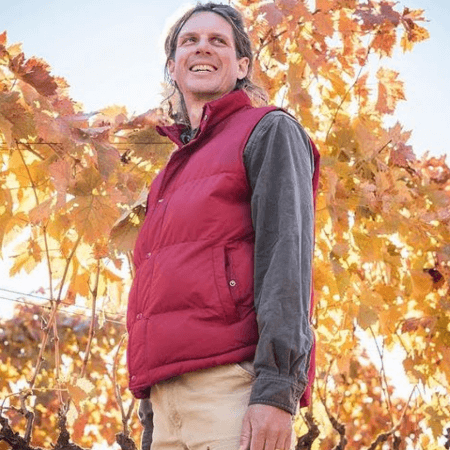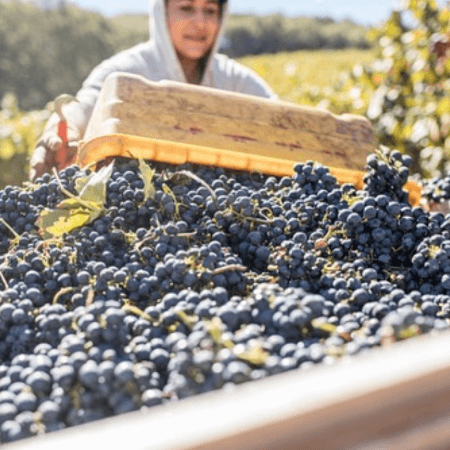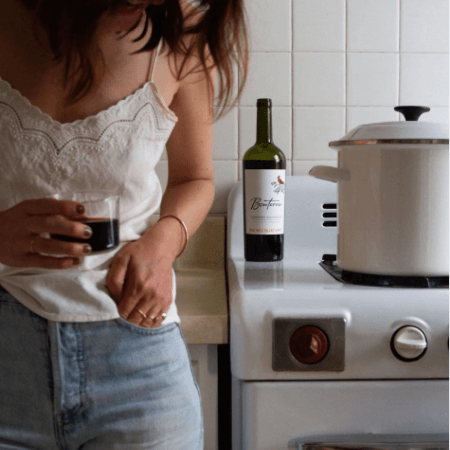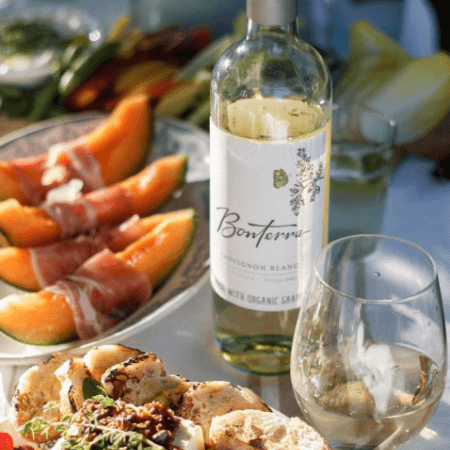Over the course of eight episodes with eight incredible wine writers, we learned a thing or two (or twenty). Here are our top eight takeaways from this season of Bonterra’s Soil to Soul podcast.
- Robert Parker’s impact on wine can’t be understated
We discussed wine scores in a lot of our conversations this season, and we delved into the history of the 100-point scoring system in Elin McCoy’s episode. Elin is the wine critic for Bloomberg News, the U.S. columnist for The Wine Conversation podcast, and frequent contributor to publications such as The World of Fine Wine, Decanter, and Elite Traveler. She also authored the book The Emperor of Wine: The Rise of Robert M. Parker, Jr., and the Reign of American Taste.
Spearheaded by Parker, the 100-point system was a pivotal moment in wine, revolutionizing how wines were evaluated, introducing a standardized metric of quality that transcended subjective descriptors. However, as McCoy astutely observes, the landscape of wine appreciation has evolved since then.
While numerical ratings remain ubiquitous, a seismic shift is underway, propelled by a new generation of consumers driven by values beyond scores. As concerns about sustainability, terroir, and cultural authenticity take center stage, the traditional paradigm of wine critique is being challenged. McCoy champions a holistic approach to wine evaluation—one that embraces the ethos of regenerative farming, inclusivity, and environmental stewardship.
- Optimism is critical in the fight against climate change
In his episode, Ray Isle – Executive Wine Editor of Food & Wine and the Wine & Spirits Editor of Travel + Leisure – shared valuable insights on the importance of maintaining optimism in the midst of climate change challenges, particularly within the wine industry.
Ray’s book, The World in a Wineglass: The Insider’s Guide to Artisanal, Sustainable, Extraordinary Wines to Drink Now, is full of optimism. In our conversation, Ray shared his belief that optimism can be a catalyst for innovation within the wine industry. Despite the challenges posed by climate change, he remains hopeful that proactive measures and innovative solutions can mitigate its effects. Whether through sustainable farming practices, technological advancements, or adaptive strategies, embracing optimism can inspire winemakers and researchers to develop creative solutions to environmental challenges.
Optimism has the power to inspire collective action and mobilize communities toward positive change. Isle emphasized the importance of collaboration and shared responsibility in addressing climate change. By fostering a sense of optimism and collective purpose, individuals within the wine industry can unite in their efforts to mitigate the impact of climate change and promote sustainability on a global scale.
- AI Won’t Replace Wine Writers
Despite advancements in technology, AI is unlikely to replace wine writers anytime soon. In his episode, Brian Freedman highlighted the limitations of AI in capturing the essence of wine. Brian writes regularly for Food & Wine, Forbes, and Whisky Advocate, and wrote Crushed: How A Changing Climate Is Altering the Way We Drink.
According to Brian, AI may excel at processing data and generating content, but it struggles to replicate the depth of human experiences and emotions that are integral to wine writing. Wine is not merely a product of chemical composition or numerical ratings; it embodies the stories, traditions, and passions of the people behind it. Wine writers like Brian bring these narratives to life, offering readers a glimpse into the rich tapestry of the wine world. From the familial connections that spark a lifelong love for wine to the innovative approaches taken by producers in response to climate change, wine writing is deeply rooted in human experiences and perspectives. While AI may assist in certain aspects of wine journalism, it cannot replace the authenticity and empathy that human writers bring to their craft. As long as wine continues to evoke a sense of wonder and connection, there will always be a place for human storytellers in the world of wine.
- A Personal Approach Goes a Long Way
Meridith May, owner of The Tasting Panel and The SOMM Journal, shared that she appreciates receiving pitches that demonstrate a genuine understanding of her publications and their audience. Rather than generic or mass emails, she values personalized messages that show thoughtfulness and relevance to her platforms. She even welcomes phone calls!
When reaching out to anyone with what is essentially a “cold call,” it’s essential to personalize your approach. Meredith recommends avoiding generic or mass emails, and instead, crafting messages that demonstrate a clear understanding of the recipient’s interests, audience, and platform. This shows thoughtfulness and increases the likelihood of engagement. This is true no matter your industry or request!
- Poetry is Powerful
James Beard awarded writer & poet Betsy Andrews talked to podcast host Jess Baum about the unique role of poetry in addressing complex issues like climate change. Unlike traditional journalism or factual reporting, poetry transcends the rational mind and speaks directly to the heart and soul. Through its rhythmic language and evocative imagery, poetry has the ability to touch readers on a profound emotional level, fostering empathy, understanding, and transformation.
Betsy believes that poetry offers a pathway to genuine connection and real transformation, appealing to our shared humanity and inspiring us to take meaningful action to protect our planet.
- Ethical Food and Drink
In her episode, Kathleen Willcox explains the evolving definition of ethical food and drink, extending beyond organic farming practices to encompass social justice, human rights, and community well-being. As consumers increasingly prioritize sustainability, certifications such as Regenerative Organic® play a vital role in guiding purchasing decisions, since they ensure that the land AND the people are taken care of.
In their conversation, Kathleen underscores to Jess the importance of considering the broader social and environmental impacts of food production, beyond traditional metrics like the “Dirty Dozen.” It’s up to everyone to stay educated and engaged, and to make purchasing choices that align with their values when possible.
Bonterra is proud that all of its 850 Mendocino County acres are Regenerative Organic Certified, and is committed to producing not just delicious and organic wine, but ethical wine as well.
Kathleen is a journalist who writes about sustainability, wine, spirits, travel, and food. She has written for Wine Enthusiast, VinePair, Wine Searcher, The Drinks Business, and Modern Farmer, and coauthored the book Hudson Valley Wine: A History of Taste & Terroir.
- The Language of Wine is Fluid
Sophie Menin’s episode introduced us to a new term: “somewhereness.” Coined by wine writer Matt Kramer, “somewhereness” describes the sense of place that a wine can evoke.
Regenerative agriculture has an impact on both the environment and the people involved in wine production, and the concept of “somewhereness” in wine relates not just to terroir but also to the social fabric of vineyard communities.
Jess also coined a new term in this episode: “ecological adoration.” Wine connects us to the greater forces of nature, and Jess posited that being attuned to the world around us is a way of practicing ecological adoration. This small snippet does not adequately capture the depth and beauty of the conversation these two had.
- Stories Come in All Forms
As East Coast Editor of The SOMM Journal and The Tasting Panel, founder of “Wine with Wanda,” and social media influencer, Wanda Mann knows how to tell a story. In her conversation with Jess, Wanda shared that her first love is writing, and it remains an effective medium for delving deep into the world of wine. But she acknowledges the changing landscape of communication, and that in order to reach a new and wider audience, everyone needs to widen their communication horizons.
From traditional articles to Instagram posts and TikTok videos, plus platforms such as Substack and YouTube, there are so many ways to reach audiences these days, and they all offer a distinct way to capture and communicate wine’s essence. The challenge lies in adapting content to suit the platform’s nuances while retaining the essence of wine’s richness. Wanda excels at this!
Final Takeaways
We can’t stop thinking about this season of the Soil to Soul podcast. Each episode had thoughtful, often deep, sometimes funny, and always illuminating questions and answers. It has really stayed with us. We’re so grateful to all of our guests for joining us, and we hope you get as much ou










 TOP
TOP
